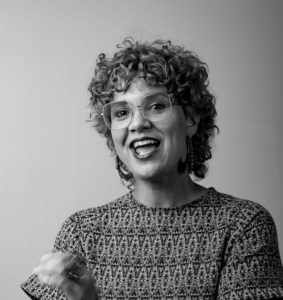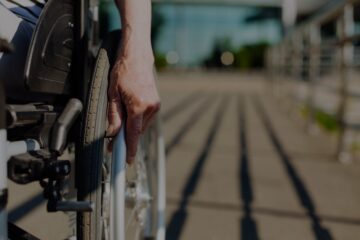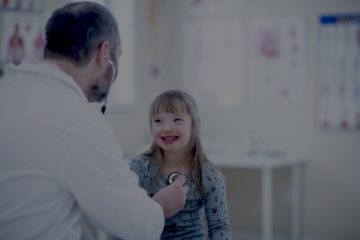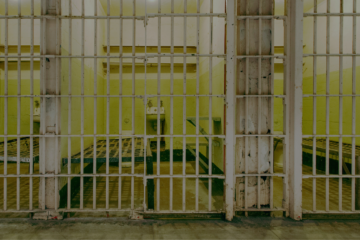by Crystal Good, writing for the “When All Are Counted” Project
Being a mother is a profound responsibility that comes with a deep, intrinsic desire to shield our children from harm. When my daughter sent me a heart-wrenching message stating that the average life expectancy for Black transgender individuals like her is a mere 35 years, my world froze for a moment. Although data and statistics can sometimes offer varied interpretations, the irrefutable truth remains— that Black individuals, whether transgender or cisgender, grapple with unparalleled challenges globally and alarmingly in our home state of West Virginia.
A report named “The State of Racial Inequality” by the West Virginia Center on Budget and Policy shines a light on racial disparities in our state. It’s startling to comprehend that while Black West Virginians constitute a small 4% of the state’s entire population, they are embroiled in a disproportionate struggle with disparities in education, income, and health.
To provide a clearer picture, the average income for a Black household was $31,000 per year in 2018, compared to $45,400 for a white household.
The ripple effect of this economic inequality is evident as many Black West Virginians find themselves relegated to low-paying jobs, coupled with an unsettlingly high unemployment rate.
The heart truly aches when we delve into the health disparities. It’s beyond comprehension that Black mothers in West Virginia are likelier to lose their babies than white mothers. Black women are three times more likely to die from a pregnancy-related cause than White women. This isn’t just a statistic; it represents inconsolable mothers, lost dreams, and shattered families.
The prejudice and racial biases faced by Black individuals were gruesomely highlighted when my daughter shared a harrowing incident from downtown Charleston. Someone had callously placed fingernails in her drink. Though she remained unharmed by God’s grace, it underscored the perils she confronts daily due to her identity.
Sean O’Leary, a Senior Policy Analyst at WVCBP, accentuated the stubborn persistence of these disparities, pointing towards their systemic origins. Echoing these sentiments, Dr. Lauri Andress, formerly of the West Virginia University School of Public Health, illustrated the physiological toll racism exacts. She detailed the “weathering” process, where enduring racism elevates cortisol levels, making the body more vulnerable to various ailments.
The numbers further paint a grim picture. The average life expectancy in Kanawha County, where Charleston nestles, is 72.5 years. This is tragically lower than the state’s average, with West Virginia languishing at the 50th rank.
Amid this bleak landscape, there are beacons of hope. Organizations like Wild, Wonderful & Healthy West Virginia bridge these chasms of disparity. Their work bolsters the health landscape of West Virginia communities. They envision fostering environments that promote residents’ health and strengthen the prospects of small businesses and entrepreneurs. They see the West Virginia identity as expansive and the definition of “health” to interlink with like education, business, transportation, and economic growth. They aspire to sculpt lasting, positive changes with initiatives like Community Health Improvement Plans.
Their motivation stems from the dire statistics:
MORTALITY
West Virginia’s Years of Potential Life Lost rate, a measure of premature mortality, is 47% higher than the national rate.
West Virginia’s diabetes mortality rate is 53% higher than the national rate.
The suicide rate in West Virginia is 27% higher than the national rate.
MORBIDITY
The average adult in West Virginia reports feeling physically unhealthy 33% more often than the average American.
The average adult in West Virginia reports feeling mentally unhealthy 31% more often than the average American.
The prevalence of adult obesity is 34% in West Virginia, a mark higher than the 27.4%
As a Mom, I want to see my children thrive in the place we call “home.” To genuinely elevate and support the marginalized communities in our state, especially our Black and transgender folks, we must provide safe spaces and access to care, including gender-affirming healthcare facilities.
According to state-level estimates from the Williams Institue, 700 West Virginians ages 13-17 identify as transgender. There are 1,800 18-24 year olds. You don’t hear much about these young people in the news or from our public health experts, and we don’t talk much about their health or lacking health care.
We don’t talk about Moms like me, frustrated at systems that won’t acknowledge or accommodate my daughter.
We need to educate healthcare professionals, especially those who aren’t Black, about the entrenched systemic racism is paramount. Only by acknowledging and combating the intersecting challenges of racism and transmisogyny can we hope to uplift Black trans voices.
We need to recognize that there’s a whole LGBTQIA+ demographic of West Virginians with specific healthcare needs, and they deserve to be counted. With the billion dollars coming in for the opioid settlement, I pray that just ONE LGBTQ+ Recovery facility will be built. To date, there is not one LGBTQ+ recovery facility in all of Central Appalachia.
As a Trans-parent, each day offers me a window into my beloved daughter’s myriad of challenges. I see her grace and beauty, and it’s countered by jarring statistics about her life expectancy and quality of life, especially in America and more so in West Virginia. It’s a tightrope walk between optimism and stark reality. Every day we choose to stay here, I can’t shake off the nagging thought that we might be shortening our time together. My hope remains strong, but I can’t ignore the stark realities we face.

Crystal Good (she/her/hers) is a writer-poet, performer, and publisher whose work seeks to trouble the Appalachian narrative toward inclusion and a more truthful representation. She is the founder and publisher of Black By God THE WEST VIRGINIAN, a print and multimedia publication centering Black voices to address the information gap. Crystal tweets @cgoodwoman.



0 Comments